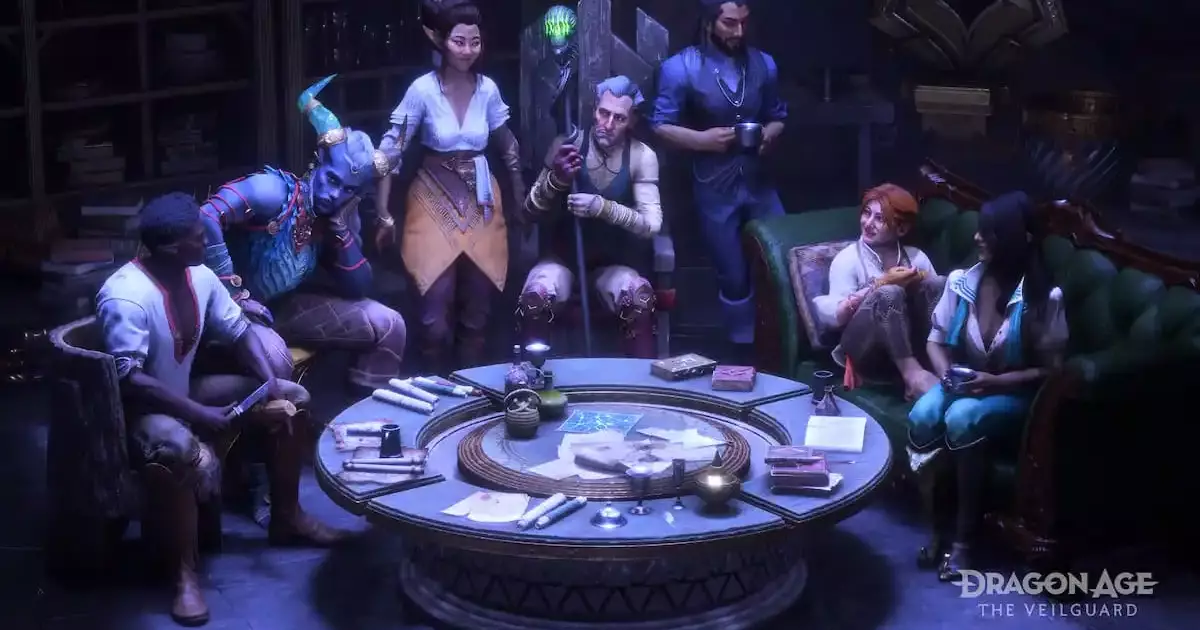Dragon Age, the beloved series crafted by BioWare, encompasses a vibrant yet chaotic fantasy realm known as Thedas. Unlike many traditional RPGs that strive for neatness in their lore, Dragon Age thrives on its inconsistency, where narratives shift based on the faction or character encountered. This article delves into the complexities of Thedas, exploring how its multifaceted nature enriches the storytelling experience and keeps players invested in the evolving world.
At the heart of Thedas lies a deep and often conflicting history—one that is shaped by the myriad perspectives of its inhabitants. Humans, elves, qunari, and other factions each carry their own interpretations of historical events, creating a tapestry of beliefs that are as diverse as the races themselves. Such perspectives form the backbone of many pivotal plot developments, particularly as characters grapple with conflicting narratives.
The notion of truth in Thedas is not absolute; it is mutable and wrapped in layers of bias and uncertainty. As former lead writer David Gaider has noted, the storytelling encourages players to engage in a discerning quest for truth, forcing them to interrogate the very nature of the history presented to them. This principle adds a rich dimension to gameplay—the idea that each character’s account might be laced with motive, excluding key elements or exaggerating particular truths to sway their audience.
Gaider emphasized the importance of doubt when creating Thedas. The farther back one peeks into history, the more obfuscated it becomes. Legends are often stylized, exaggerated, or outright untrue, depending on who’s recounting them. This intentional ambiguity serves a dual purpose: it enriches the world by injecting a sense of realism into the fantastical and invites players to form their own conclusions.
In many ways, this approach mirrors the way histories function in our own world. A single historical event can be transformed into myriad narratives, each colored by the storyteller’s biases or cultural expectations. In Dragon Age, players are invited to adopt a similar lens, thus creating a personalized understanding of the lore that is uniquely theirs.
The introduction of new titles within the Dragon Age franchise, such as “Dragon Age: The Veilguard,” exemplifies the continuing journey through this layered narrative. This installment promises to draw upon ancient elven deities who possess first-hand experience of the earliest epochs of Thedas. Their insights could potentially illuminate the mists that have shrouded pivotal mysteries, such as the nature of the enigmatic Black City, which holds significant importance in the lore.
However, as Gaider pointed out, this ongoing exploration comes with its own risks. On one hand, resolving long-standing questions risks fracturing the very fabric of Dragon Age’s appeal. On the other, this resolution may yield a richer gameplay experience, fulfilling player curiosity while also establishing a foundation for future narratives. The tension between clarity and ambiguity remains a fascinating theme for both the developers and the community.
Dragon Age thrives on philosophical queries surrounding truth and interpretation. The enigmatic nature of its world parallels the journey of a player who weighs conflicting viewpoints and seeks to carve out a personal understanding. Players are compelled to question the reliability of their sources, fostering a richer and more engaging experience compared to many other RPGs that present lore in a straightforward, encyclopedic fashion.
For enthusiasts of fantasy settings, the allure of navigating through a landscape of competing narratives is irresistible. Unlike games that reward extensive exploration for absolute clarity, Dragon Age maintains a delicate balance—one that encourages inquiry and embodies a spectrum of beliefs among its characters. This ongoing investigation allows for a dynamic relationship with the lore, ensuring that each player experience remains distinct.
As “Dragon Age: The Veilguard” enters the realm of player experience, the series finds itself at a precipice where age-old mysteries may gradually be illuminated or left in tantalizing obscurity. The beauty of Thedas lies not only in its rich history but also in its ability to provoke introspection regarding the nature of truth and belief.
Ultimately, the Dragon Age franchise serves as a compelling reflection of the human condition, questioning how we navigate conflicting realities, embrace uncertainty, and uncover meaning in a world rife with diverse narratives. Whether BioWare chooses to define the ultimate truths or continues to cultivate the mythos of Thedas through doubt and interpretation, one thing remains certain: players will thrive on their unique journeys through this intricate universe, ever eager to uncover its mysteries.


Leave a Reply
You must be logged in to post a comment.